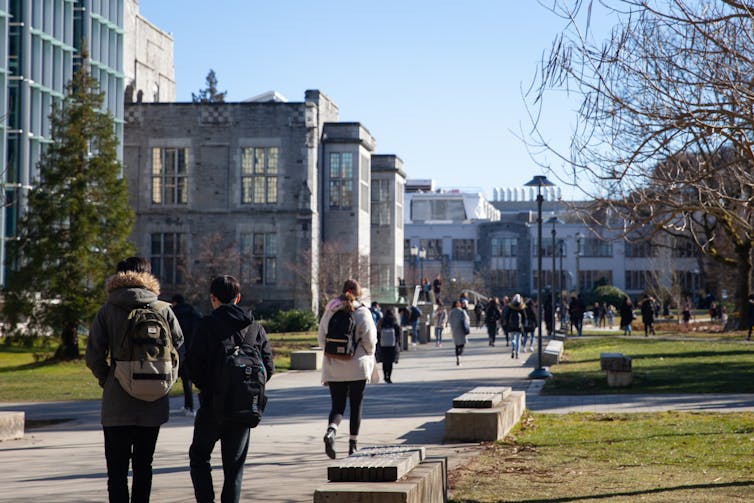Almost 50 Canadian universities and colleges signed the Scarborough Charter on Anti-Black Racism and Black Inclusion in Canadian Higher Education. The charter, which emerged from a national conversation in 2020, acknowledged the ethical responsibility of universities “to give voice to alternative ways of knowing.”
These tools for thought, or “ways of knowing,” are crucial to real problem solving. As the maxim says: to a person with only a hammer, every problem looks like a nail. But as academics we must look beyond dominant frameworks and knowledge. We must look to alternative ways of knowing.
As experts in ways of knowing, we know that having too much confidence in the idea that particular truths are right, good or natural is a dangerous limitation to our ability to imagine. As education scholar Odora Hoppers writes:
“When textbooks and formal institutions designated to produce and legitimise knowledge become cognitive regimes that acknowledge only the victor, and defeated knowledges are erased or condemned as unscientific, then we witness a system of complicity in withholding freedom from those who need it the most – those on the receiving end of knowledge apartheid.”
Whether it is gun violence, racial inequality, poverty or climate change, when people are exposed to a particular worldview because it is the predominant narrative around them, they lose the ability to see and solve problems in better ways. But, as human beings, we have the power to re-evaluate the way knowledge shapes what we come to know and create entirely different solutions to many of the challenges we face today.

New solutions to persistent problems
The commitment to develop alternative ways of knowing includes the important mandate to train students for a diverse world and job market, but it is also much broader. It is about giving them the tools to holistically understand the world we live in through nuanced perspectives on the challenges and opportunities we face.
For example, it is impossible to fully comprehend how employment can be exploitative without developing labour studies that understand the violence acted upon racialized and migrant workers. If we want to invest in a stronger culture of care, it is necessary to value and invest in women’s and gender studies that have held this work and have interrogated it.
We should support a version of disability studies that stops considering the differently-abled as objects of saviourism and centres them as agents in their own lives and stories.
Canadian universities should place our nation within a larger American story that stretches from Patagonia to the Yukon, rather than presuming us to transcend both geography and our own colonial history.
We imagine universities that invest in these alternatives and necessary ways of knowing. Many well-resourced and respected university disciplines have an ongoing conversation about their lack of diversity and how difficult it is to stop replicating old, broken systems.
But what if change doesn’t come from within?

Imagine flourishing
Take Canadian struggles with anti-Black racism, for example. Along with accountability, mutuality and inclusive excellence, the Scarborough Charter identified Black flourishing as a core principle of its work.
Black Studies should focus on the study of Black thriving and resilience, not Black deficiency and its remediation. By doing this, the disparities between Black and white Canadians — in professional achievement, educational attainment, family structures and criminal behaviour — are better understood as tensions between two alternative ways of knowing in which one of those ways has been given more social and political power.
But what if traditionally Black ways of working were valued so that outcomes and efficacy were valued over rule compliance? What if historically Black family systems that recognize the community’s responsibility for the child were seen as inherently worthwhile, rather than out of step with notions about the nuclear family? Would that not fundamentally change the landscape of what it is to be Black and what it is to be white in communities across Canada?
However, by merely looking to individual faculties and departments to model diversity, universities perpetuate a deeply limited way of knowing our present and imagining the future. Rather, the university itself must change.
At the University of Windsor, we have worked with faculty members, librarians, staff and senior administrators to reimagine and recreate institutional spaces for building alternative ways of knowing. We have worked to reimagine what solutions look like when they are not designed by the same thinking that created the problem. So we have created an Interdisciplinary and Critical Studies Department, where we understand disability not as a deficiency in the body, but as a source of strength in the person. And where we theorize queerness in the spirit of pride. We challenge universities to include other perspectives on changing the world because there could be no other way but equitable inclusion.
By doing this, we can meet our Scarborough Charter commitment, foster better scholarly conversations that include alternative ways of knowing and ultimately improve life for all of us.

